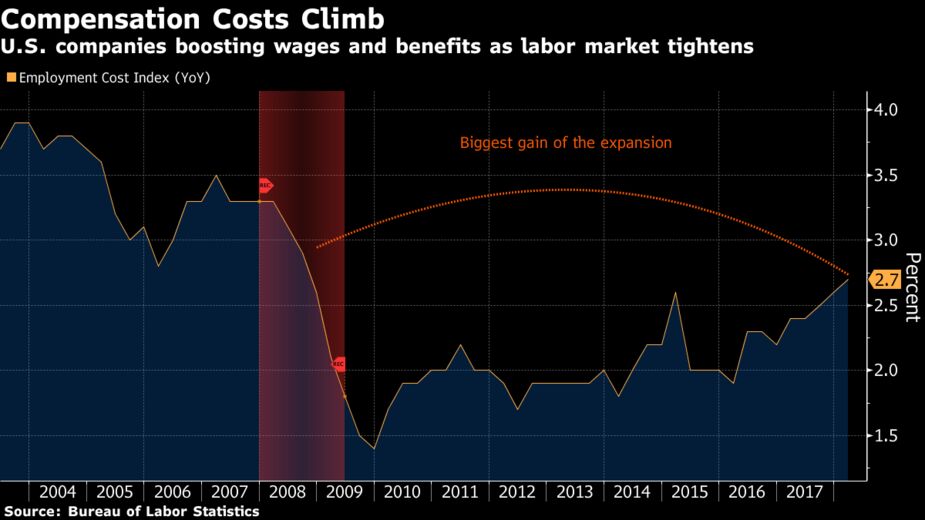 Benefit costs rose 2.6 percent from a year earlier, the most since the first quarter of 2015. (Photo: Shutterstock)
Benefit costs rose 2.6 percent from a year earlier, the most since the first quarter of 2015. (Photo: Shutterstock)
U.S. employment costs increased more than forecast in the first quarter as worker pay and benefits accelerated, according to Labor Department data released Friday.
Key takeaways
The ECI data showed year-over-year acceleration in compensation in both services and goods-producing industries, underscoring widespread demand for labor. Employers are making more generous offers as they compete for workers in a tightening job market.
Recommended For You
Rising labor costs will help push overall inflation toward the Federal Reserve's goal. At the same time, signs of emerging inflation pressures may elevate concern among investors that policy makers will have reason to raise interest rates more aggressively than anticipated.
Highlights of Employment Cost Index (1Q) |
|---|
|
The quarterly read on the ECI — covering employer-paid taxes such as Social Security and Medicare in addition to expenses for wages and benefits — offers a comprehensive look at how workers are being compensated.
The latest ECI figures may have also been influenced by several factors. The gauge of employer costs in the first quarter is prone to surprises as it includes year-end bonuses, and the volatility may have been magnified this time by one-time payouts made by companies in response to the Republican-backed tax cuts enacted in December.
Average hourly earnings, a separate monthly measure of private- sector wages that can be influenced by shifts in industry employment and hours worked, has only gradually increased. Growth in worker pay has been slow to accelerate even as the unemployment rate has fallen to the lowest level since 2000.

Other details
- Wages and salaries of all civilian workers rose 2.7 percent from year earlier, biggest year-over-year gain since the fourth quarter of 2008
- Benefit costs rose 2.6 percent from a year earlier, the most since the first quarter of 2015
© Touchpoint Markets, All Rights Reserved. Request academic re-use from www.copyright.com. All other uses, submit a request to [email protected]. For more inforrmation visit Asset & Logo Licensing.






